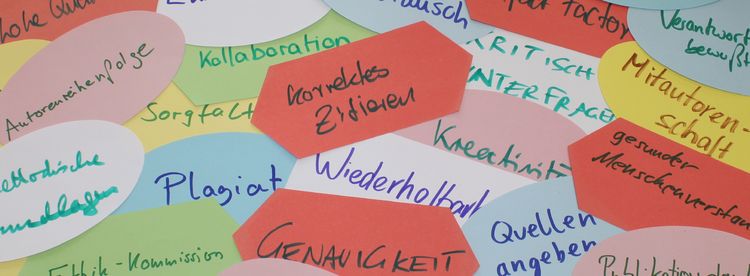Good Scientific Practice
Compliance with the principles of good scientific practice is the foundation of scientific work. TUM and the TUM Graduate School help you, as a new academic, follow these principles.
For you as a doctoral candidate, this issue is relevant for three reasons:
- You need to avoid scientific misconduct in your own work, and act honestly.
- As a supervisor for Bachelor’s or Master’s theses, you will need to be able to recognize scientific misconduct.
- As a doctoral candidate, you are entitled to regular academic advice and support.
That is why the following questions are addressed in the Frequently Asked Questions (FAQs):
- What is ‘good scientific practice’?
- What principles apply?
- What kind of support is available?
- What is considered scientific misconduct?
- What should I do if I find out about scientific misconduct?
- What is plagiarism?
The FAQs are based on the "Statute of the Technical University of Munich on Safeguarding Good Academic Practice and Procedures in Cases of Academic Misconduct (TUM-SGwP)" (German and English PDF) at Technical University of Munich, and the corresponding Code of Deutsche Forschungsgemeinschaft (DFG).
Ombudspeople
The TUM ombudspeople deal with issues regarding the good scientific practice and scientific misconduct. As independent confidants, you can approach them with your questions or problems - in particular during your scientific qualification phase.
TUM-GS recommends that you first contact your supervisor, your mentor or your Graduate Center in case you need advice concerning good scientifc practice. In many cases, the situation can be resolved and problems can be prevented by an early discussion of the issue at hand.
